Youth Risk Education
Youth Risk Education
Access to gambling has significantly increased over the recent years, with online gambling being a primary contributor to its expansion. Globally, there are approximately 6.84 billion smartphones worldwide, accounting for 85% of the global population. In the United States, over 90% of those ages 14-18 have smartphones.
With easier access to gambling through smartphones, youths are more susceptible to begin participating in sports betting and other forms of gambling. What’s more, one of the two predictors for developing a gambling disorder is starting gambling at a young age.
It is vital to know what forms of gambling adolescents are exposed to, to teach them alternate forms of gambling, and to help them practice responsible gambling through awareness and implementing safeguards.
Below are some gambling statistics to know.

Prevalence of Gambling

At least one form of legalized gambling is accessible in 48 states and Washington, D.C.
Most individuals who engage in gambling do not experience harm. However, some individuals who gamble will end up gambling at a problematic rate or have a gambling disorder diagnosis. The worldwide adult prevalence rate for moderate-risk gamblers is 2.43%, and for problem gamblers, 1.29%.
New Forms of Gambling in Youth
New forms of gambling have recently emerged, expanding the popularity and accessibility of gambling to younger populations. With the expansion of internet and mobile gaming also comes the increased marketing of loot boxes towards young individuals, exposing them to behaviors linked to gambling that may have a monetary value tied to the video game.
Popular video games include:
- Counter Strike 2
- Apex Legends
- FIFA
- And many others
These video games include loot boxes that are purchased using real currency. These loot boxes contain a mystery item of a particular rarity. The rarer the item, the lower the probability of obtaining it.
Gambling Among College Students
 Gambling has become an increasingly popular activity for college students. Reports show that 54% of college students gambled while in college. Gambling harms among college students may be higher compared to other adults and may include any of the following:
Gambling has become an increasingly popular activity for college students. Reports show that 54% of college students gambled while in college. Gambling harms among college students may be higher compared to other adults and may include any of the following:
- Failing grades
- Psychological distress
- Unmanageable debt
- Using student loans or financial aid to gamble
The Rise of Sports Betting
Sports betting has expanded significantly in the past five years after the landmark 2018 Supreme Court verdict Murphy v. National Collegiate Athletic Association. Following this decision came the legalization of sports betting, which now expands to 35 states, as well as Washington, D.C.
Individuals have easy access to sports betting through mobile apps such as:
- FanDuel
- BetMGM
- DraftKings
- Caesars Sportsbook
- And many others
Among these apps are various wagering methods, including prop bets, parlay bets, live bets, and many others.
Social Media Influence on Youth Gambling
Social media has become a major part of daily life for many young people, serving as a primary source of entertainment, communication, and information. However, it has also become a significant contributor to the rise in youth gambling. Platforms such as Instagram, TikTok, and YouTube are increasingly being used by gambling companies to promote their services, often in subtle or disguised ways that appeal directly to younger audiences.
Targeted Advertising and Promotions
One of the most concerning aspects of social media’s influence on youth gambling is the targeted advertising. Algorithms used by platforms like Facebook and Instagram can track user behavior, allowing gambling companies to direct advertisements to those most likely to engage with their content—often young people who show interest in sports, gaming, or similar activities. These ads often depict gambling as an exciting, easy way to make money, omitting the potential risks and losses involved.
Additionally, social media platforms are filled with influencer promotions. Influencers with large followings, many of whom are young themselves, are often paid to promote gambling apps, betting websites, or casino games. Their endorsements can make gambling seem glamorous and trendy, further enticing their young followers to try it out.
Normalization of Gambling Through Content
Beyond direct advertising, gambling is frequently normalized through user-generated content on social media. For example, videos of people winning large sums of money on betting apps, livestreams of online poker games, or even casual mentions of placing bets can desensitize young viewers to the dangers of gambling. The repetitive exposure to gambling related content can create a perception that gambling is a common, acceptable, and even desirable activity among peers.
Psychological Impact on Youth
The psychological impact of social media on youth gambling is profound. Young people are highly impressionable and are often driven by a desire for social acceptance and approval. The portrayal of gambling as fun, easy, and profitable on social media can lead to unrealistic expectations and a lack of awareness about the potential consequences. The instant gratification offered by gambling apps, combined with the validation received from likes and comments on social media, can create a powerful and potentially addictive feedback loop.
Parental Guidance and Monitoring: Defense Against Youth Gambling
As gambling becomes increasingly accessible to young people through online platforms and mobile apps, the role of parents and guardians in protecting their children from potential risks has never been more critical. While technology has brought many benefits, it has also introduced new challenges that require proactive measures from families to ensure the well-being of their children.
Learn More About Gambling Disorder
Explore our additional learning resources to see how you or a loved one can gain control over a gambling disorder. If you’re concerned about your child’s exposure to gambling, The Gambling Clinic® in Tennessee offers specialized support and resources to help.
Learn More About Gambling Disorder
Explore our additional learning resources to see how you or a loved one can gain control over a gambling disorder.


